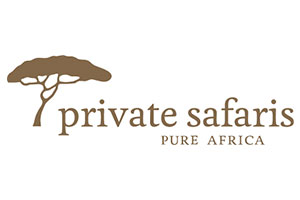The Gambia
Travel tips for the Gambia
Top 5 Experiences
A Hidden Gem of golden beaches, picturesque fishing villages and lush coastal reserves embraced by Senegal. Highlights include:

Kololi Beach
Along the Gambian coast, Kololi offers lively beach bars, water sports, and an overall nice atmosphere. Ideal for both relaxation and excitement alike.

Arch 22
Located in the capital, Banjul, Arch 22 stands tall as a symbol of national pride and historical significance. Majestic and iconic, it offers panoramic views of the city and the river.

Bijilo Forest Park
Dedicated to conservation efforts, the park is home to various monkeys, birds, and reptiles, providing a unique blend of forest and coastal environments The Gambia is a bird paradise. The country lies on the migration route of numerous migratory birds and is home to more than 500 different tropical bird species.

Tanji Fishing Village
With colourful wooden boats, this bustling fishing community offers a firsthand experience of local coastal traditions.

Kachikally Crocodile Pool
This sacred site, where Nile crocodiles freely roam, is believed to have healing powers. The site also invites visitors to learn more about its cultural importance.
Tourist infrastructure
The main gateway for international travelers to The Gambia is Banjul International Airport. When traveling overland, it is essential to be aware of increased accident risks, especially after dark. While many roads are in poor condition and lacking streetlights, positive options for crossing the Gambia River include a toll bridge between Farafenni and Mansa Konko/Soma since 2019, or a ferry from Banjul to Barra. Bringing your passport is a must for river crossings.
Regarding hotel infrastructure, Gambia offers a range of accommodations catering to diverse preferences and budgets. From budget-friendly options to luxury resorts, visitors can find suitable lodging with various amenities.
Climate and travel season
From November to May, the area experiences a subtropical climate, with temperatures reaching a pleasant high of up to 30 degrees Celsius and low humidity. This period aligns with the dry season, which extends from late October to June and is characterised by minimal rainfall. The rainy season typically occurs from June to October.
Visa and entry
Citizens of Germany, Austria and Switzerland need a passport valid for at least six months and a visa to enter Madagascar. The tourist visa is issued on arrival at all international airports.
Since the regulations can change at any time, all information are non-binding and without guarantee. Please observe the visa regulations and the current information of the Federal Foreign Office / Federal Ministry European and International Affairs / Federal Department of Foreign Affaires at all times.
Impressions from The Gambia
(Click to enlarge)
Stories
International Hotel Chains Are Driving the Hotel Boom in Africa
Frankfurt, 03 April 2024 - The "Big 5" of global hotel chains - Accor, Hilton, IHG, Marriott International and Radisson ...
Internationale Hotelketten treiben den Hotelboom in Afrika voran
ReThinking Africa Initiative setzt sich für Investitionen in Afrikas Tourismuswirtschaft ein Frankfurt, 03. April 2024. Die „Big 5“ der globalen Hotelketten ...
Voice4Africa x ReThinking Africa News March
KLEBER Group x ReThinking Africa News March 2024 Content Foreword Investment in Africa's tourism industry as a driver for sustainable ...
Our partners for the Gambia
Visas, Entry, and Updates
Current accessibility
Corona precautionary measures
Status: 05.11.2021


















